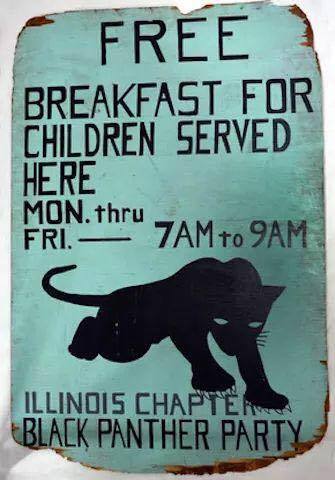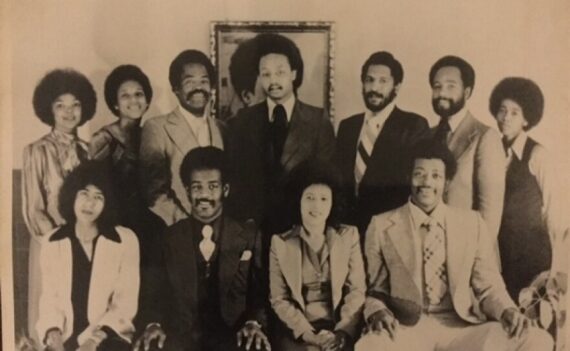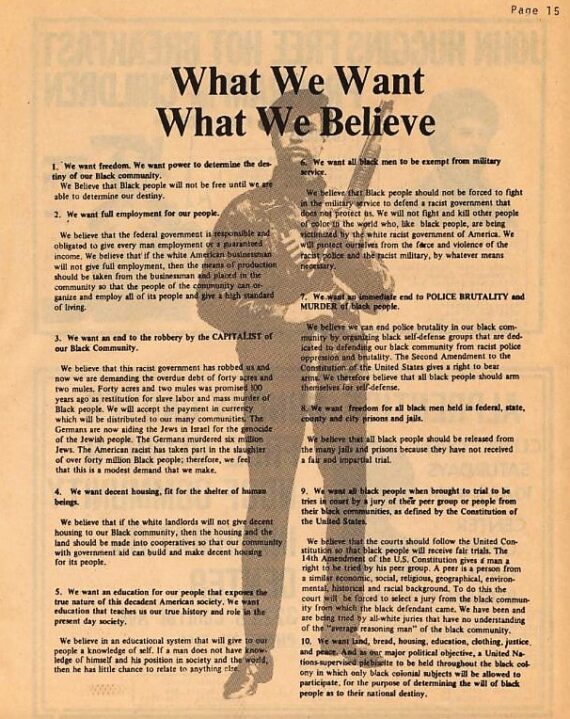Making and consuming food is, inherently, a cooperative activity. These acts derive much of their power from being a communal activity. This had such resonance in the Black Panther Party’s work. The Free Breakfast for Children program fulfilled specific needs: of feeding children and getting them to school. But it was also the choice of food, how the Panthers sourced the food, who made the food, and everything that happened during and around eating: homework help, Black history, and the mentoring from young, smart people in the young childrens’ community. And the amount of coordination — and cooperation! — that had to occur to actually run the breakfast program was astounding. [Continue reading here…]
Free Breakfast Program for Children
The foundation for a conversation about the Black Panther Party’s social programs should begin with the Ten Point Platform and Program. Almost all of the programs began with an innovative example that then became part of sustainable community programs, like churches, hospitals and other non profits. Some of the programs like the Free Breakfast for Schoolchildren Program were actually community organizing tools because local residents were hosting kids in their homes, pastors in their churches etc. [Continue reading here…]
When we tell the history of the Black Panther Party for Self-Defense, we often focus on the open carrying of guns and the armed police patrols. That was spectacular. It is what propelled the Black Panthers into the national spotlight—especially the confrontation at the California statehouse in Sacramento on May 2, 1967. But what receives less attention is that, at the very moment the Black Panther Party emerged in October 1966, it came to life with a mission focused on community service and cooperation: a ten-point platform and program focused on combatting poverty in African-American communities. The platform demanded social and economic rights, including full employment, housing, food, education, land, clothing, as well as justice and peace, and very quickly cooperative community programs were put in place for child and adult nutrition, education, health and welfare. Community service and cooperation were central to the mission. [Continue reading here…]



